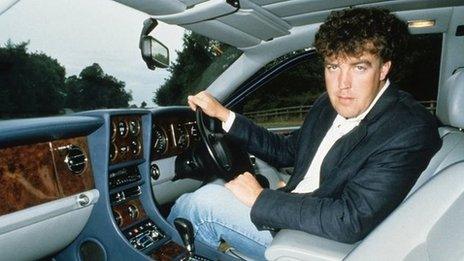Protests cut short Top Gear shoot
- Published
Lizo Mzimba reports on the controversy surrounding the licence plate
The crew of BBC's Top Gear have left Argentina after facing protests over a number plate which appeared to refer to the 1982 Falklands War.
The team, including host Jeremy Clarkson, have been filming in South America for a Top Gear special.
The show apparently provoked anger among locals by using a Porsche with the registration number H982 FKL.
The BBC confirmed the show's decision to leave, but denied the offending car was chosen for its number plate.

The BBC said the number plate was an "unfortunate coincidence"
Andy Wilman, executive producer for Top Gear, said on Thursday: "Top Gear production purchased three cars for a forthcoming programme; to suggest that this car was either chosen for its number plate, or that an alternative number plate was substituted for the original is completely untrue."
The team departed three days early after being denied permission to film by local authorities.
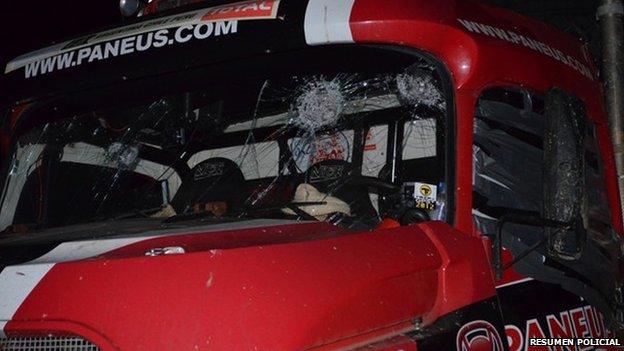
Vehicles carrying Top Gear production crew were also targeted
It was reported the cars had been abandoned by the roadside and the crew were escorted to the airport after being pelted with stones.
Clarkson flew into the country earlier last month to film a special which saw him and co-stars Richard Hammond and James May drive the famous Patagonian highway - Route 40 - to the southernmost city of Ushuaia.
Protests were held outside the hotel being used by the show's stars.
A BBC spokesman said: "We're pleased the team is safe and would like to thank all of those who have helped. As the executive producer has made clear, the number plate issue is a very unfortunate coincidence."
Final warning
It is not the first time the show has met with controversy. In July Ofcom ruled that Top Gear had breached broadcasting rules after Jeremy Clarkson had used a racial slur during a Top Gear special in Burma.
A 2011 episode caused a diplomatic incident in Mexico.
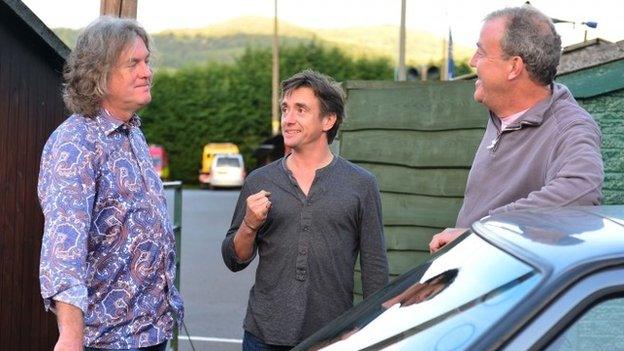
James May, Richard Hammond and Jeremy Clarkson are no strangers to controversy
Co-host Richard Hammond said Mexican cars reflected national characteristics - saying they were like a "lazy, feckless, flatulent oaf with a moustache, leaning against a fence asleep, looking at a cactus with a blanket with a hole in the middle on as a coat".
In May this year, the BBC faced calls to fire Clarkson after leaked footage showed him mumbling an offensive version of the nursery rhyme Eeny, Meeny, Miny, Moe in a clip that was not broadcast.
Clarkson revealed he had been given a final warning and would be sacked if he made "one more offensive remark, anywhere, at any time".
- Published28 July 2014
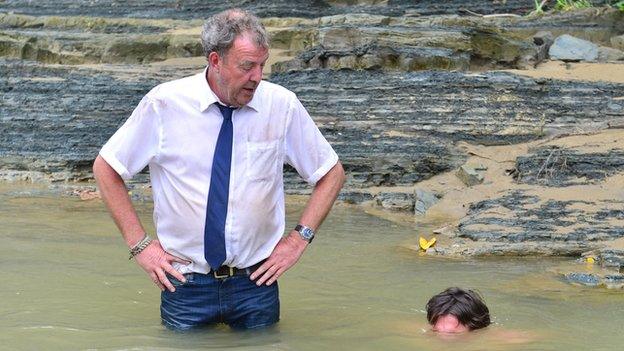
- Published23 April 2014

- Published3 May 2014
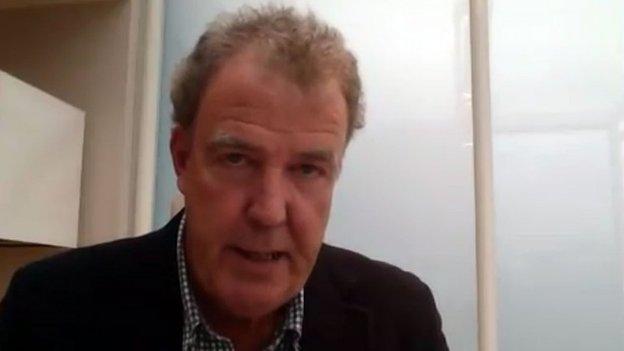
- Published2 May 2014
